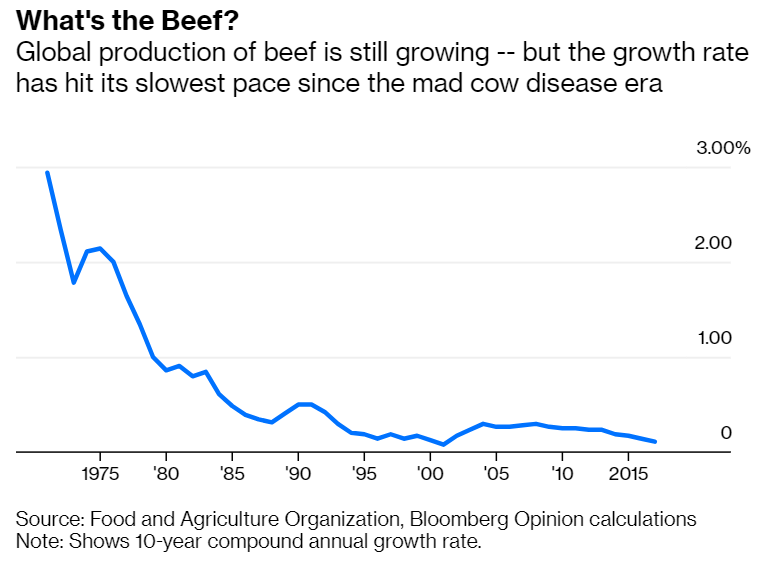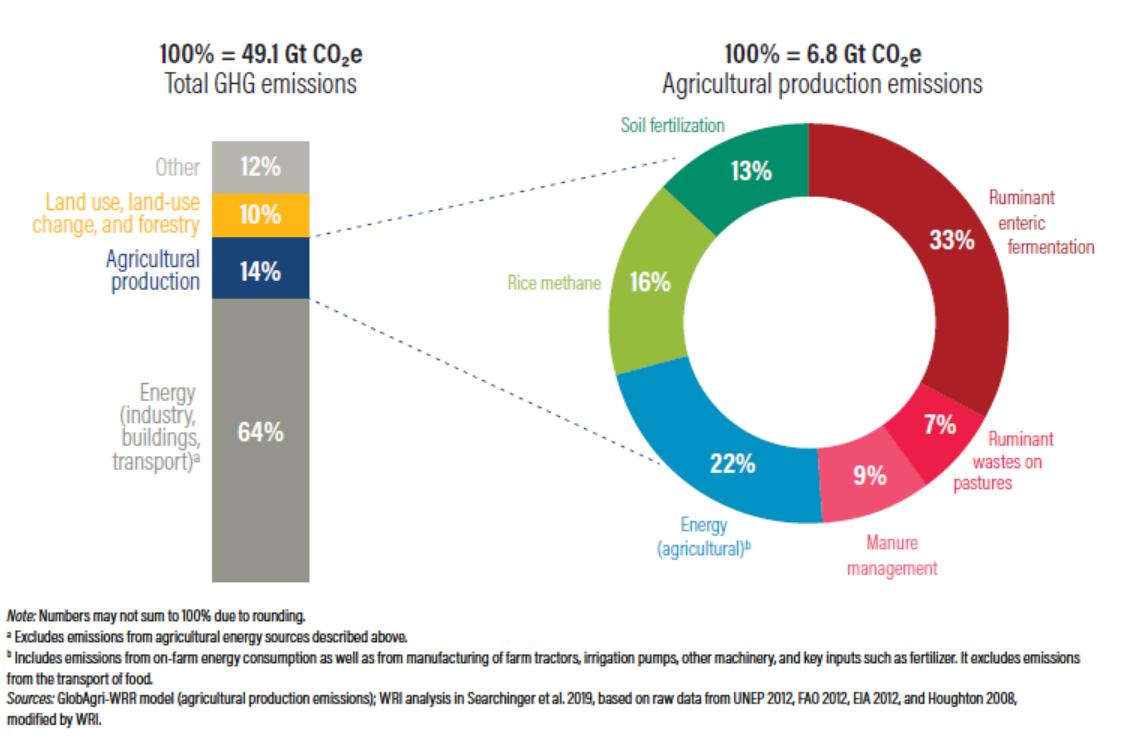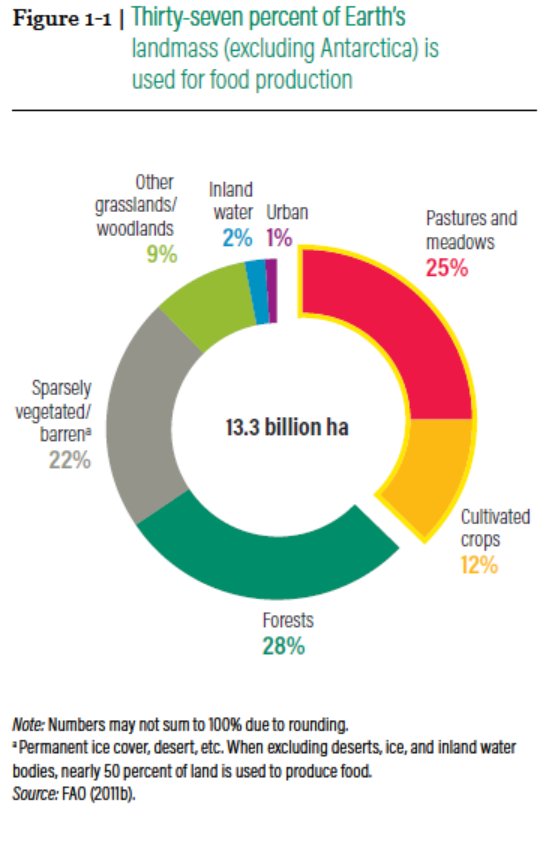
Interesting article about tradeoffs b/t solar/wind expansion & conservation, due to land requirements. It's not trivial: recent Princeton study says net-zero might require >144M acres of land dedicated to wind/solar, an area larger than California! 1/2
latimes.com/business/story…
latimes.com/business/story…
I'd point out an additional comparison: solar is WAY more land-efficient than bioenergy. On most lands, solar would produce *100x* as much useable energy/acre vs. bioenergy. (US already dedicates >30M acres of cropland to ethanol, producing only 7% of US transport fuel.) 2/2 

So yes, solar & wind require land, but are way more land-efficient than bioenergy. Bioenergy also requires productive land that could produce food or store carbon if not used for bioenergy. So let's expand solar & wind, but do so thoughtfully, balancing other land-use goals. 3/3
Sources:
Bioenergy/solar map and analysis: WRI sustainablefoodfuture.org, Chapter 7
US ethanol land use: Bloomberg bloomberg.com/graphics/2018-…
Bioenergy proportion of US transport fuel: USDA ers.usda.gov/data-products/…
Bioenergy/solar map and analysis: WRI sustainablefoodfuture.org, Chapter 7
US ethanol land use: Bloomberg bloomberg.com/graphics/2018-…
Bioenergy proportion of US transport fuel: USDA ers.usda.gov/data-products/…
(And if I could edit tweet #1, I'd make clearer I'm referring to achieving net-zero emissions for the whole country, not just for California.)
• • •
Missing some Tweet in this thread? You can try to
force a refresh








